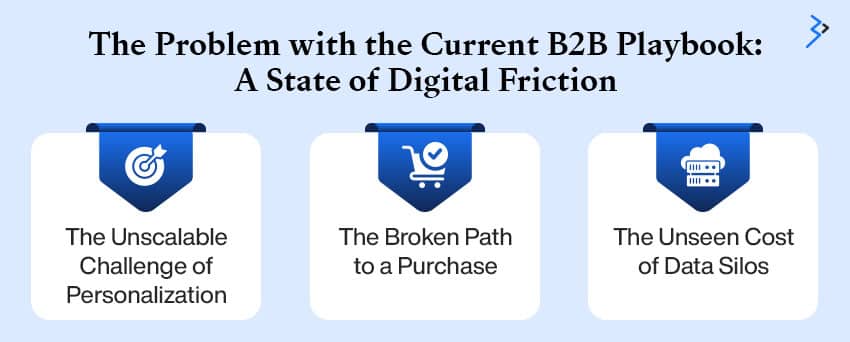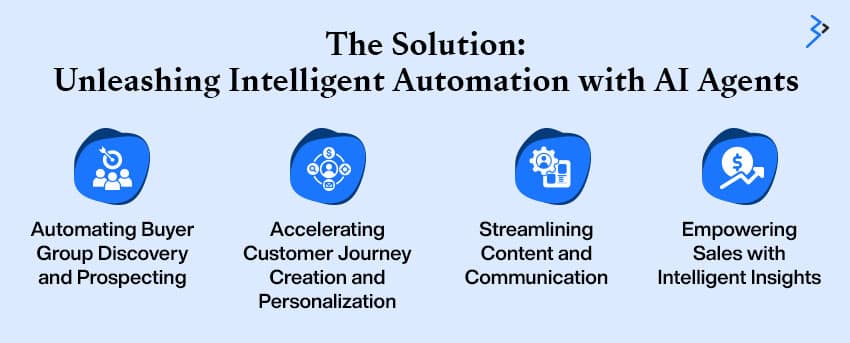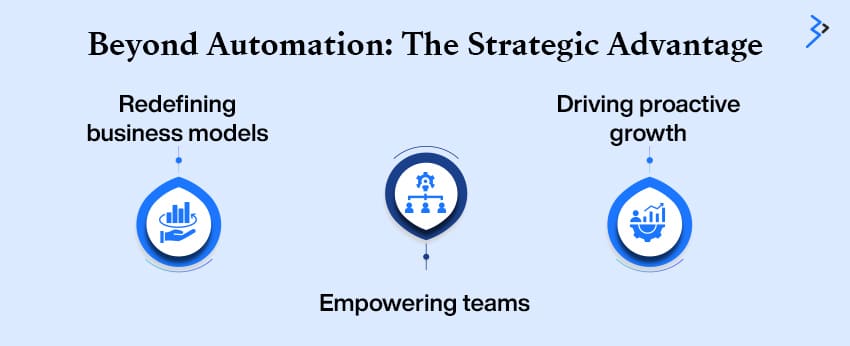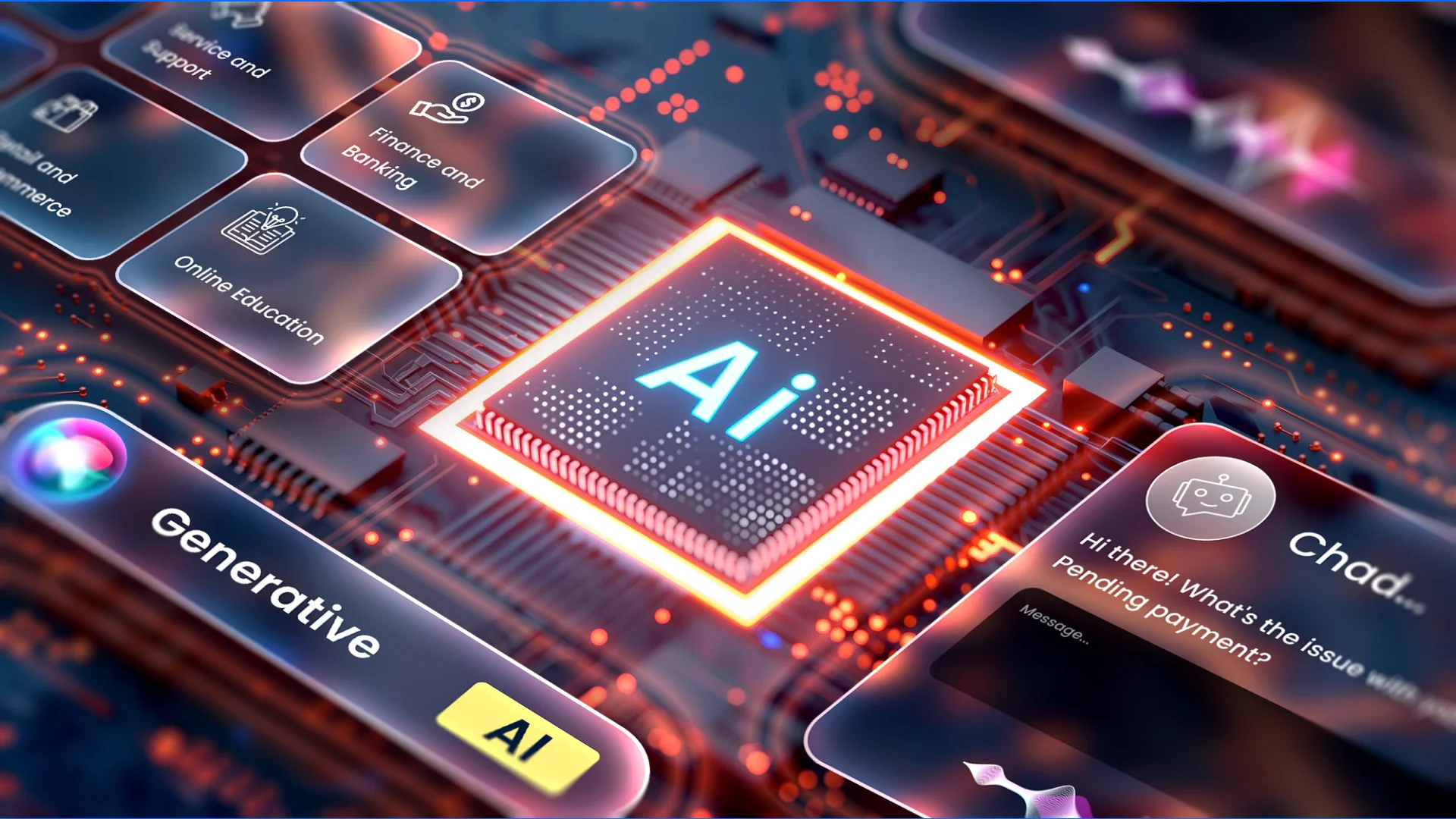In B2B, every deal feels like a marathon. The journey is complex, involving multiple stakeholders and extensive research. But what if the biggest obstacle is the journey itself? With savvy buyers doing their research and delaying conversations with salespeople, friction can stall deals entirely.
Enter AI-driven agents~ not just chatbots, but intelligent assistants that transform chaos into clarity. They eliminate manual tasks and streamline efforts, empowering your teams to become strategic advisors. Embrace the digital transformation and watch your go-to-market strategy soar!
The Problem with the Current B2B Playbook: A State of Digital Friction

For years, B2B marketing and sales teams have followed a playbook that doesn’t suit today’s digital landscape. This outdated approach has created a fundamental disconnect between effort and outcome, leading to many costly problems.
1. The Unscalable Challenge of Personalization
Your buyers expect a personalized experience. They don’t want generic content or a one-size-fits-all sales pitch. A McKinsey study found that companies that excel at personalization see 40% more revenue from their efforts. But meeting that expectation at scale is tough.
The average B2B buying group involves multiple stakeholders with unique needs and priorities.
Trying to manually personalize a journey for each person, across every channel, is a logistical nightmare. It leads to fragmented, disjointed experiences that make buyers feel like another name on a list.
Your teams have the right intentions, but don’t have the tools to do it effectively and at scale. It’s like trying to manually send a thousand personalized holiday cards when you could hit “send” on an email campaign.
2. The Broken Path to a Purchase
Today’s B2B buyers are in control of their own journey. But what happens when they hit a roadblock? What if they struggle to locate pricing information, or if they find the product specifications they need hidden behind a complicated form? A recent Gartner survey found that 69% of B2B buyers reported discrepancies between information on sales organizations’ websites and what was provided by the seller.
These small moments of friction can cause a deal to stall or a prospect to walk away. The traditional sales process is a series of hoops for the buyer to jump through, and if they get tired, they’ll simply give up.
Imagine a customer trying to troubleshoot a product, but a key document is in an internal folder that their sales rep forgot to share. The journey breaks down, frustration mounts, and a potential sale is lost.

3. The Unseen Cost of Data Silos
Your valuable business intelligence is scattered across a dozen different systems. Marketing has a content management system, sales has a CRM, and customer support has a ticketing system. A fragmented data ecosystem forms, which makes essential information inaccessible.
A sales rep talking to a prospect may not know they’ve already read your blog posts on a specific topic. Or, worse, a customer with an open support ticket gets a “cold” email from your marketing team. This lack of a unified data source leads to a disjointed customer experience and frustrating internal inefficiencies.
This situation results in missed opportunities and higher costs per lead. It’s like trying to win a game of chess when you can only see half of the board.
Read More – Creating a Simple Chatbot: Shaping the Future of Conversational AI
The Solution: Unleashing Intelligent Automation with AI Agents

AI agents are a fundamental shift from simple automation to intelligent decision-making. Unlike basic rules-based bots, they can perceive data, reason through context, and take autonomous actions across multiple platforms.
They are not just tools but a new layer of intelligence that sits on top of your existing systems, making them smarter and more cohesive. Here’s how they are revolutionizing the B2B landscape.
1. Automating Buyer Group Discovery and Prospecting
AI agents are redefining the top of the sales funnel. Instead of manually searching for leads, a sales professional can task an AI agent with finding new prospects. The agent can then autonomously analyze vast amounts of data, from behavioral intent signals and public firmographics to technographic data, to identify and assemble ideal buying groups.
This is where AI SDR capabilities shine, acting as tireless digital sales development reps that initiate outreach, nurture early intent signals, and ensure no high-value prospect falls through the cracks.
How it works: Imagine you want to target companies in the healthcare sector with over 500 employees. An AI SDR agent can scan your target market for companies actively researching solutions like yours. It will then use its intelligence to find key decision-makers and influencers within those companies and enrich their profiles with relevant context, such as recent news, leadership changes, or technology usage.
Providing a pre-qualified list of “warm” prospects enables your team to conduct targeted outreach. Along with AI-powered prospecting, many companies still rely on B2B Telemarketing Services to conduct personalized outreach calls and qualify prospects in real time. This approach saves countless hours of manual research and ensures your team can focus on the most promising leads.
2. Accelerating Customer Journey Creation and Personalization
Personalization is a key differentiator in B2B, but it’s hard to scale. AI agents change this. They can automatically craft and manage unique, personalized journeys for multiple accounts. For instance, an agent can analyze a prospect’s initial engagement (e.g., they downloaded a whitepaper on cloud security) and then autonomously trigger a series of personalized follow-ups and for digital service providers, incorporating an AI voice agent for digital agency can extend these personalized interactions beyond text and email to voice-based touchpoints that engage leads in more human-like ways.
Sending a case study related to their industry or suggesting a webinar on a pertinent topic can be effective strategies. The agent’s continuous learning ensures that the journey adapts in real-time based on the prospect’s behavior, ensuring the right message is delivered at the right time, every time.
Think of it this way: instead of building a single, static sales funnel, an AI agent creates a custom, dynamic path for every single prospect, anticipating their needs and delivering the perfect content without any manual intervention. Enhancing efficiency allows the buyer to feel understood and valued, which is the primary goal of personalization.
3. Streamlining Content and Communication
Content is the fuel for the B2B engine, but preparing the right content for the right person is a significant hurdle. AI agents act as content concierges, automating the gathering and curating relevant assets.
- For marketing, an AI agent can analyze a new campaign’s goals and autonomously pull the most effective blog posts, testimonials, and product videos from your CMS to build a campaign landing page. This ensures that all your content is strategically aligned.
- For sales: An AI agent can listen to a sales call or read an email chain and automatically pull the most relevant case study, product spec sheet, or pricing document from the CRM, placing it directly into a shared digital sales room. Empowering the sales team with accurate, relevant information eliminates the laborious effort of searching for it manually.
4. Empowering Sales with Intelligent Insights
The sales intelligence market is a key growth area, indicating a clear trend toward data-driven sales. Future Market Insights projects that the global sales intelligence market will achieve a value of $11.7 billion by 2035. AI agents are at the forefront of this movement. They provide sales teams with a continuous stream of actionable intelligence, acting as personal data analysts and assistants while enhancing the effectiveness of modern sales engagement platform tools.
AI agents can provide predictive insights on which accounts are most likely to convert, a prospect’s key pain points, and the ideal time to engage. They can also automate the tedious follow-up tasks that often fall through the cracks. This allows sales professionals to concentrate on strategic discussions and relationship building, freeing their time.
With AI handling the data, sales reps can transform from administrative workers into strategic advisors, driving more deals and building lasting customer loyalty. Beyond this,AI agents can also strengthen sales readiness through intelligent AI roleplay simulations that allow reps to simulate real buyer objections, refine messaging, and receive instant feedback ensuring they are fully prepared for high-stakes conversations.
Read More – From Manual to Intelligent: How AI and RPA Are Redefining Customer Support
Beyond Automation: The Strategic Advantage

AI agents’ ultimate value isn’t just saving time; it’s shifting the entire B2B business model. By offloading the grunt work to intelligent automation, you foster a culture of strategy, innovation, and creativity.
Your marketing team can spend less time on manual list-building and more on high-impact campaign design, and your sales team can spend less time on data entry and more on genuine, high-touch customer engagement.
Think of it as a shift from a reactive to a proactive mindset. Instead of reacting to a stalling deal, an AI agent can proactively flag it and suggest a course of action. A fundamental change in your business’s operations can increase agility, responsiveness, and competitiveness.
A Look at Real-World Scenarios

Companies are harnessing the potential of AI agents daily to tackle real-world B2B challenges.
- KPMG’s “TaxBot” for Automated Tax Advice
KPMG developed a private AI platform—TaxBot—that leverages multiple large language models (LLMs) to turn a 100-page prompt into detailed, 25-page tax advice reports in just one day, a process that previously took two weeks, according to TechRadar. - McKinsey’s AI Agents Empower Consultant Productivity
According to a recent Wall Street Journal report, McKinsey has deployed approximately 12,000 AI agents across its operations. These bots assist consultants by drafting presentations, summarizing research, and even fine-tuning messaging in the firm’s signature style. The firm predicts that an AI agent will soon support each employee. - U.S. Bank Enhances Lead Conversion with Salesforce Einstein
U.S. Bank uses Salesforce’s AI-powered Einstein to score leads using web activity, company size, and role factors. This intelligent segmentation led to a 2.35× increase in conversions and a 300% jump in marketing-qualified leads at Agile Growth Labs.
Conclusion
The future of B2B marketing and sales belongs to brands that embrace intelligent automation. The choice is clear: you can continue to operate with a fragmented, manual approach, or you can leverage the power of AI agents to build a more streamlined, data-driven, and human-centric operation. It’s about empowering your people, optimizing your processes, and turning your company’s information into a strategic engine for growth.
Ultimately, the goal is to make your business more agile, productive, and successful. At Brainvire, we are at the forefront of this digital shift. We specialize in developing and implementing AI-driven solutions custom-built to solve your most complex B2B challenges.
Let us help you navigate the next wave of digital transformation and turn your marketing and sales processes into a powerful engine for growth.
FAQs:-
Unlike static automation, AI agents continuously learn from data, adapt to new behaviors, and make context-aware decisions. They can optimize campaigns, qualify leads, and dynamically recommend better actions, surpassing rule-based systems.
Yes. AI agents handle repetitive and data-heavy tasks, such as segmentation, scoring, and personalization at scale. Marketers then use these insights to focus on strategy, storytelling, and building genuine client relationships—ensuring the “human touch” remains central.
The biggest hurdles are data quality, integration with existing systems, and cultural adoption. Businesses that align AI implementation with their current workflows, supported by strong change management, achieve the fastest ROI.
Many organizations start seeing improvements in lead qualification, sales cycle efficiency, and customer engagement within 3–6 months. However, the timeline depends on data readiness, team adoption, and the complexity of sales processes.
Brainvire provides custom-built AI solutions tailored to specific B2B challenges. Instead of one-size-fits-all tools, they design scalable, ethical, and industry-focused AI strategies—helping brands move from fragmented workflows to streamlined, data-driven growth engines.
Related Articles
-
Demystifying AI Agents: Capabilities, Use Cases, and Implementation
Artificial intelligence (AI) agents are becoming increasingly prevalent. They offer intelligent solutions for automating tasks, enhancing decision-making, and improving overall efficiency across various industries. In fact, the global AI market
-
From Manual to Intelligent: How AI and RPA Are Redefining Customer Support
Do you recall the days when customer service was on a never-ending series of phone menus, boilerplate mail answers, or days to wait to get a call back? Such days
-
Top 12 AI-driven Testing Tools to Explore in 2025
AI-powered testing tools have revolutionized the software testing process by automating and optimizing various stages of quality assurance (QA). These tools utilize artificial intelligence and machine learning to enhance test




